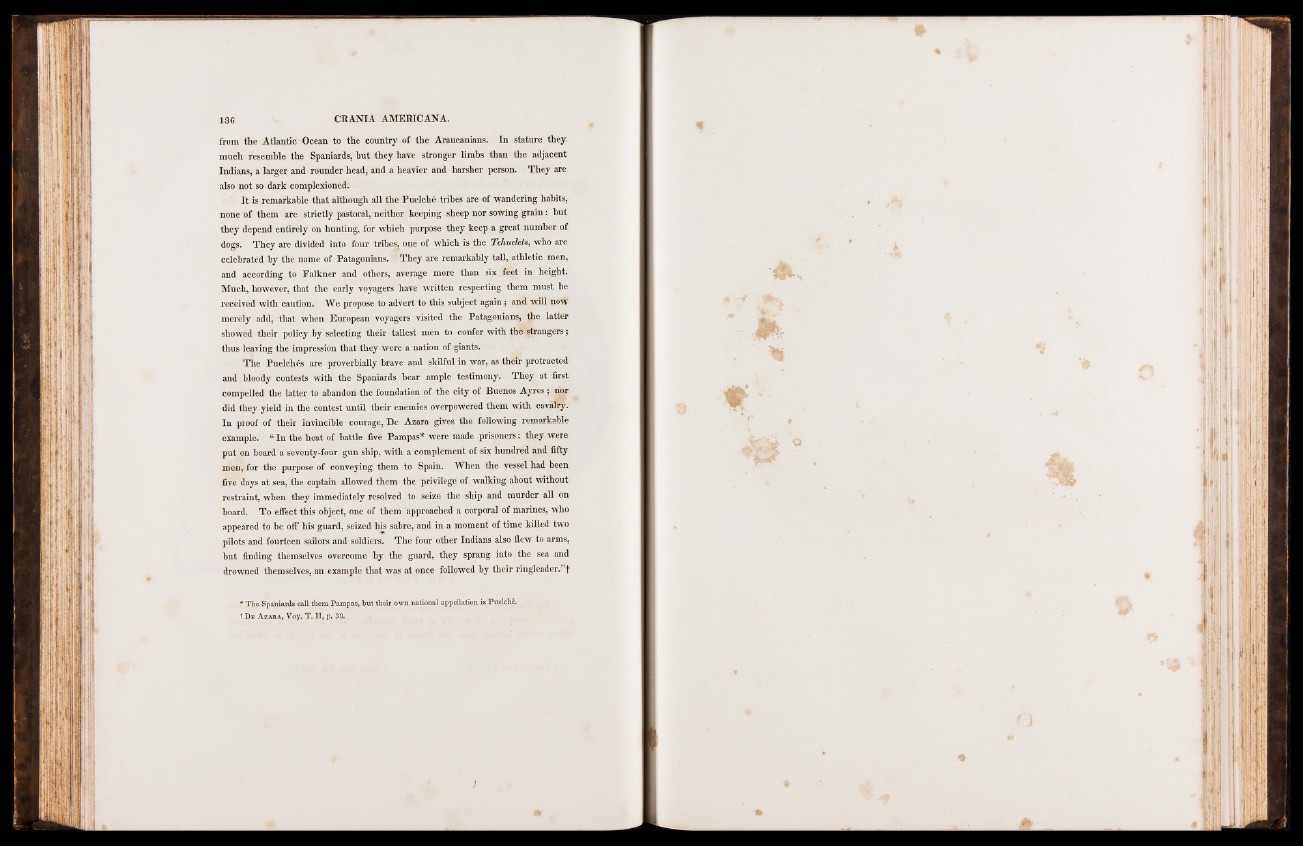
136 CRANIA AMERICANA.
from the Atlantic Ocean to the country of the Araucanians. In stature they
much resemble the Spaniards, hut they have stronger limbs than the adjacent
Indians, a larger and rounder head, and a heavier and harsher person. They are
also not so dark complexioned.
It is remarkable that although all the Puelche tribes are of wandering habits,
none of them are strictly pastoral, neither keeping sheep nor sowing grain : hut
they depend entirely on hunting, for which purpose they keep a great number of
dogs. They are divided into four tribes, one of which is the Tehuelets, who are
celebrated by the name of Patagonians. They are remarkably tall, athletic men,
and according to Falkner and others, average more than six feet in height.
Much, however, that the early voyagers have written respecting them must be
received with caution. We propose to advert to this subject again; and will now
merely add, that when European voyagers visited the Patagonians, the latter
showed their policy by selecting their tallest men to confer with the strangers;
thus leaving the impression that they were a nation of giants.
The Puelches are proverbially brave and skilful in war, as their protracted
and bloody contests with the Spaniards bear ample testimony. They at first
compelled the latter to abandon the foundation of the city of Buenos Ayres ; nor
did they yield in the contest until their enemies overpowered them with cavalry.
In proof of their invincible courage, De Azara gives the following remarkable
example. “ In the heat of battle five Pampas* were made prisoners: they were
put on board a seventy-four gun ship, with a complement of six hundred and fifty
men, for the purpose of conveying them to Spain. When the vessel had been
five days at sea, the captain allowed them the privilege of walking about without
restraint, when they immediately resolved to seize the ship and murder all on
board. To effect this object, one of them approached a corporal of marines, who
appeared to be off his guard, seized his sabre, and in a moment of time killed two
pilots and fourteen sailors and soldiers. The four other Indians also flew to arms,
but finding themselves overcome by the guard, they sprang into the sea and
drow'ned themselves, an example that was at once followed by their ringleader.”!
* The Spaniards call them Pampas, but their own national appellation is Puelche.
t De Azara, Voy. T. II, p. 39.